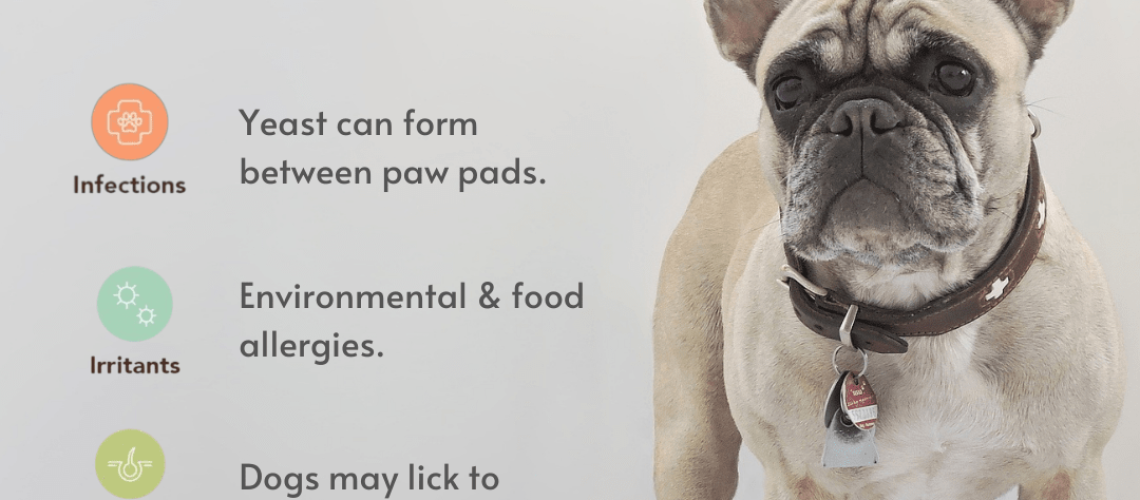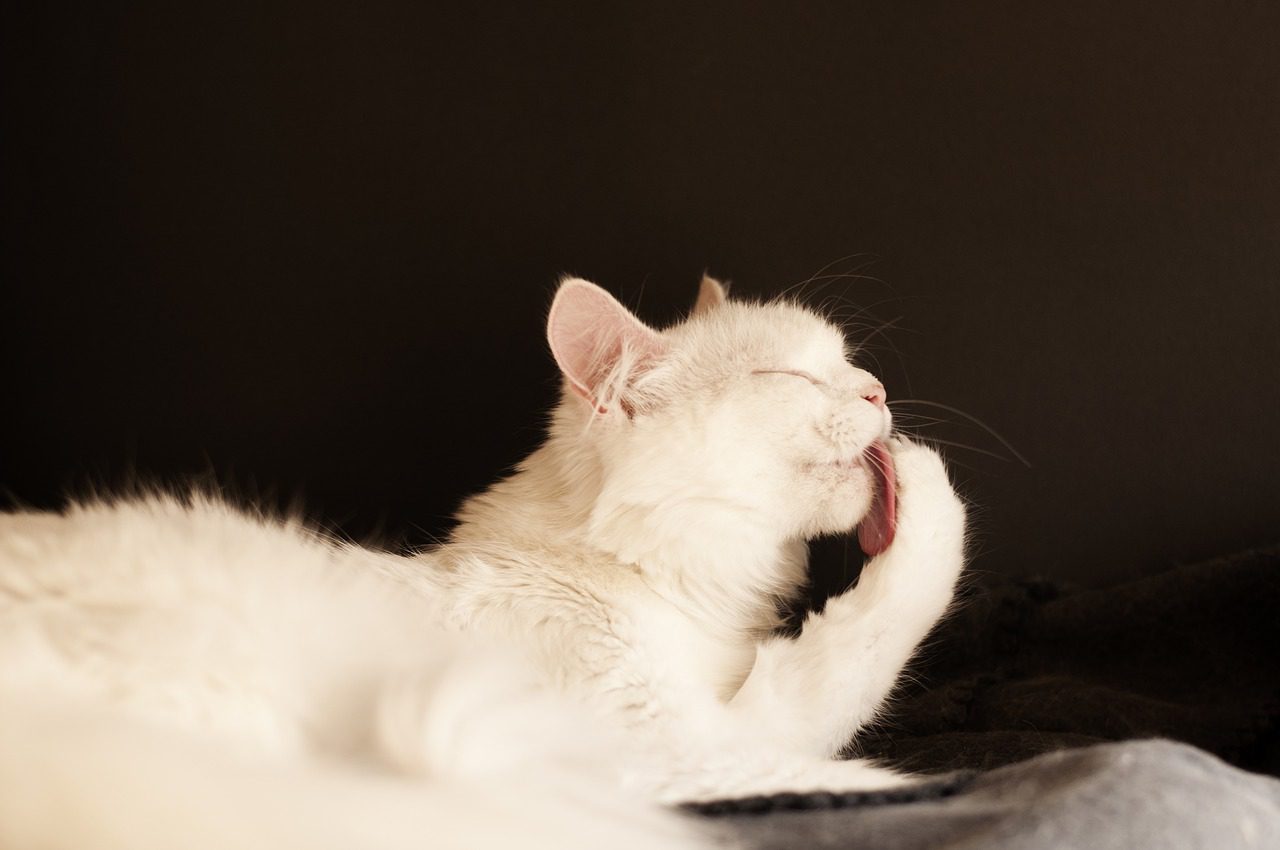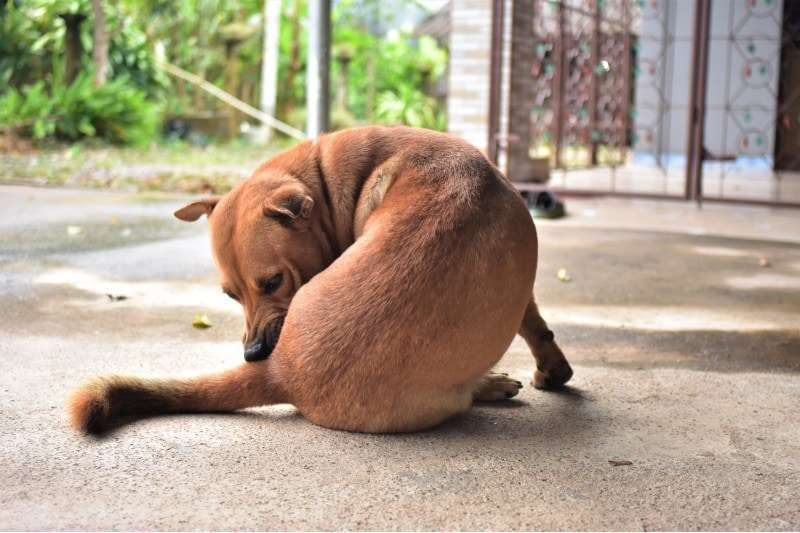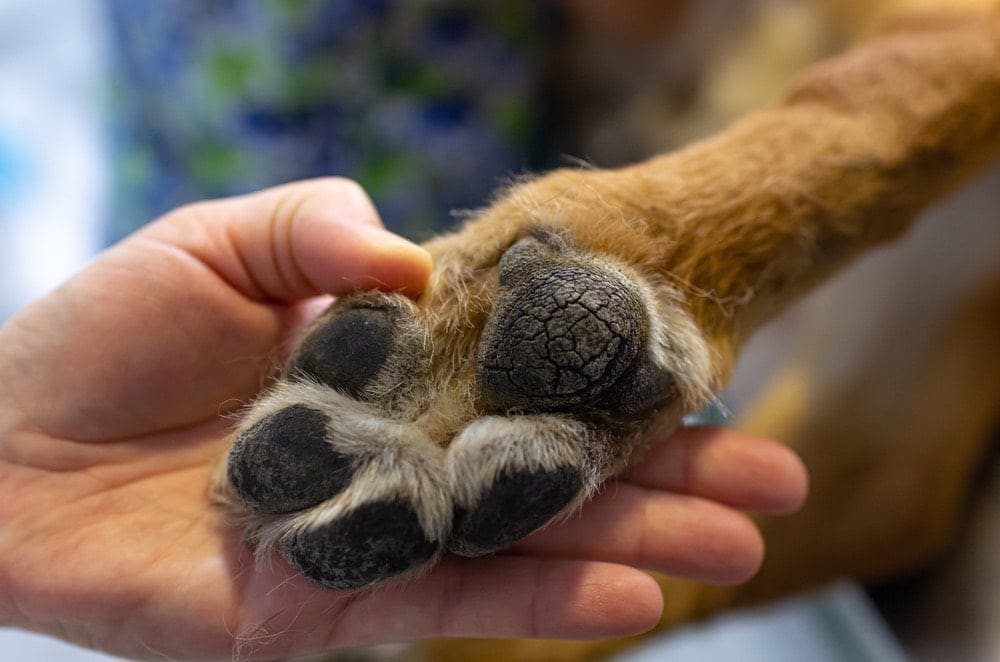Key Takeaways:
- Dogs may lick their paws as a way to clean themselves, similar to how humans use their hands.
- Licking can also be a form of self-soothing for dogs, providing comfort and relief from stress or anxiety.
- Allergies and skin irritations can cause dogs to excessively lick their paws as a way to alleviate discomfort.
- Infections or injuries on the paws may lead to increased licking, as dogs instinctively try to clean and heal the affected area.
- If excessive paw licking persists or is accompanied by other symptoms, it is important to consult a veterinarian for proper diagnosis and treatment.
Introduction:
Have you ever wondered why dogs lick their paws? It's a fascinating behavior that can provide valuable insights into our furry friends' well-being. Understanding this topic is essential because it can help us ensure our pets are happy and healthy. So, let's dive into the world of paw licking and uncover the reasons behind this intriguing behavior. By the end of this read, you'll have a better understanding of your dog's actions and be able to take better care of them. Get ready to discover the secrets behind those slobbery paws!
Why do dogs lick their paws?
Common reasons why dogs lick their paws
Dogs lick their paws for various reasons, and it's important to understand why they engage in this behavior. One common reason is that dogs may be trying to clean themselves. Just like humans, dogs can get dirt or debris stuck between their toes or pads, and licking helps remove these irritants. Another reason is that dogs may be experiencing itchiness or irritation on their paws due to allergies, insect bites, or skin infections. Licking provides temporary relief by soothing the discomfort.
In some cases, excessive paw licking can also be a sign of stress or anxiety in dogs. Similar to how humans might bite their nails when feeling nervous, dogs may resort to licking their paws as a self-soothing mechanism. Additionally, boredom or lack of mental stimulation can lead to excessive paw licking as a way for dogs to occupy themselves.
How can a dog's paws get irritated or itchy?
A dog's paws can become irritated or itchy due to various factors. One common cause is allergies. Dogs can be allergic to certain foods, environmental allergens like pollen or dust mites, or even certain materials such as grass or carpet fibers. When exposed to these allergens, a dog's immune system reacts by releasing histamines, which can cause itching and irritation on the paws.
Insect bites are another potential source of irritation for a dog's paws. Fleas, ticks, mosquitoes, and other insects can bite a dog's feet and leave behind saliva that triggers an allergic reaction and leads to itching. Additionally, fungal or bacterial infections can occur on the paw pads if they are constantly moist from walking on damp surfaces or if proper hygiene is not maintained.
How does licking help a dog with irritated or itchy paws?
Licking can provide temporary relief for dogs with irritated or itchy paws. When a dog licks its paws, the saliva acts as a natural moisturizer and can soothe dry or irritated skin. The licking motion also stimulates blood flow to the area, which can promote healing and reduce inflammation.
However, excessive licking can exacerbate the problem rather than providing long-term relief. It can lead to further irritation, create open sores or hot spots, and even introduce bacteria into the already sensitive area. Therefore, it is important to address the underlying cause of the irritation and find ways to prevent excessive licking.
Potential health issues that cause excessive paw licking in dogs
Excessive paw licking in dogs can be a symptom of various health issues that require attention from a veterinarian. Some potential causes include:
- Allergies: Dogs can develop allergies to certain foods, environmental allergens like pollen or dust mites, or materials they come into contact with.
- Skin infections: Bacterial or fungal infections on the paw pads can cause discomfort and lead to excessive licking.
- Insect bites: Fleas, ticks, mosquitoes, and other insects can bite a dog's feet and trigger an allergic reaction.
- Parasites: Parasites like mites or mange can infest a dog's paws and cause itching and irritation.
- Joint pain: Dogs with arthritis or other joint conditions may lick their paws due to discomfort.
Tips to prevent excessive paw licking in dogs
To help prevent excessive paw licking in your dog, consider implementing these tips:
- Maintain proper hygiene: Keep your dog's paws clean and dry to prevent the buildup of bacteria or fungi.
- Check for irritants: Regularly inspect your dog's paws for any foreign objects, cuts, or signs of allergies.
- Address allergies: If your dog has allergies, work with a veterinarian to identify the triggers and develop a management plan.
- Provide mental stimulation: Engage your dog in activities that keep their mind occupied to prevent boredom-induced licking.
- Use protective boots: In certain situations, such as during walks on hot pavement or snowy conditions, consider using dog boots to protect your pet's paws.
Safe and effective remedies for soothing a dog's irritated paws
If your dog's paws are already irritated or itchy, there are several safe and effective remedies you can try:
- Epsom salt soak: Dissolve Epsom salt in warm water and soak your dog's paws for about five minutes. This can help reduce inflammation and soothe the skin.
- Oatmeal bath: Use colloidal oatmeal products specifically designed for dogs to create a soothing bath that can alleviate itching and irritation.
- Aloe vera gel: Apply a small amount of pure aloe vera gel to your dog's paws. Aloe vera has natural anti-inflammatory properties that can provide relief.
- Cool compress: Gently apply a cool compress or ice pack wrapped in a cloth to your dog's paws for short periods to reduce swelling and offer temporary relief.
- Veterinary-prescribed medication: In severe cases, your veterinarian may recommend topical creams, oral medications, or allergy shots to manage your dog's paw issues.
Common reasons why dogs lick their paws
Dogs may lick their paws for various reasons. One common reason is allergies. Just like humans, dogs can be allergic to certain substances such as pollen, dust mites, or certain foods. When they come into contact with these allergens, it can cause itchiness and discomfort in their paws, leading them to lick excessively. Another reason could be boredom or anxiety. Dogs may resort to licking their paws as a way to self-soothe when they are feeling stressed or bored. Additionally, injuries or irritations on the paw pads can also trigger excessive licking. These can include cuts, burns, or even foreign objects stuck between their toes.
Allergies
Allergies are a common cause of paw licking in dogs. They can be caused by environmental factors such as pollen or dust mites, or by certain ingredients in their food. When a dog is exposed to an allergen, it triggers an immune response that leads to itching and irritation in the paws. This prompts the dog to lick and chew at their paws in an attempt to alleviate the discomfort.
Boredom and Anxiety
Just like humans, dogs can experience boredom and anxiety. When dogs feel bored or anxious, they may engage in repetitive behaviors such as excessive paw licking. This behavior provides them with a temporary distraction and helps them cope with their emotions. However, if left unchecked, it can become a compulsive habit that is difficult to break.
Injuries and Irritations
Injuries or irritations on the paw pads can also lead to excessive licking. Dogs may step on sharp objects that cause cuts or burns on their paws. Additionally, foreign objects like thorns or burrs can get stuck between their toes, causing discomfort and prompting them to lick excessively.
To prevent excessive paw licking, it is important to identify and address the underlying cause. If allergies are suspected, consulting with a veterinarian can help determine the specific allergens and develop a management plan. Providing mental stimulation and regular exercise can help alleviate boredom and anxiety-related licking. Regularly checking your dog's paws for injuries or irritations and promptly removing any foreign objects can also prevent excessive licking.
How can a dog's paws get irritated or itchy?
Dogs' paws can become irritated or itchy due to various reasons. One common cause is allergies. Just like humans, dogs can be allergic to certain substances such as pollen, dust mites, or certain foods. When dogs come into contact with these allergens, their immune system reacts by releasing histamines, which can lead to paw irritation and itching.
Another cause of paw irritation is dryness. Dry weather conditions or excessive exposure to heat can cause the skin on a dog's paws to become dry and cracked. This can be uncomfortable for the dog and may result in them licking their paws excessively in an attempt to soothe the itchiness.
Allergies
Allergies are a common cause of paw irritation in dogs. These allergies can be triggered by environmental factors such as pollen, mold, or dust mites. Additionally, dogs can also develop food allergies that manifest as paw itching and inflammation.
Dryness
Dryness is another factor that can contribute to paw irritation in dogs. This often occurs during dry weather conditions or when dogs are exposed to excessive heat. The lack of moisture in the air can cause the skin on their paws to become dry and cracked, leading to discomfort and itchiness.
How does licking help a dog with irritated or itchy paws?
Licking is a natural behavior for dogs and serves multiple purposes, including providing relief for irritated or itchy paws. When a dog licks its paws, it helps to moisturize the skin by spreading saliva over the affected area. Saliva contains enzymes that have antibacterial properties and can help prevent infections caused by excessive scratching.
Licking also stimulates the release of endorphins, which are natural painkillers. This can provide temporary relief from the discomfort caused by irritated or itchy paws. However, excessive licking can worsen the condition and lead to further irritation or even open wounds.
Moisturizing Effect
When a dog licks its paws, the saliva acts as a natural moisturizer for the skin. The enzymes present in saliva help to hydrate and soothe the irritated area, providing temporary relief from itching and discomfort.
Endorphin Release
Licking also triggers the release of endorphins in a dog's body. Endorphins are hormones that act as natural pain relievers and can help alleviate some of the discomfort associated with irritated or itchy paws.
Potential health issues that cause excessive paw licking in dogs
Excessive paw licking in dogs can be a sign of underlying health issues that require attention. One potential cause is allergies. Dogs can develop allergies to various substances, including certain foods, environmental allergens like pollen or dust mites, or even flea bites. These allergies can manifest as itchiness and irritation on their paws, leading to excessive licking.
Infections are another possible cause of excessive paw licking. Bacterial or fungal infections can occur when bacteria or fungi enter small cuts or abrasions on a dog's paws. These infections can be painful and may prompt dogs to lick their paws excessively in an attempt to alleviate the discomfort.
Allergies
Allergies are one of the primary causes of excessive paw licking in dogs. Whether it's an allergic reaction to food ingredients or environmental factors like pollen or dust mites, these allergens can trigger intense itching and irritation on a dog's paws, leading to excessive licking.
Infections
Bacterial or fungal infections can also cause dogs to excessively lick their paws. These infections can occur when bacteria or fungi enter small cuts or abrasions on the paws, resulting in pain and discomfort. The dog's natural response is to lick the affected area in an attempt to relieve the irritation.
Tips to prevent excessive paw licking in dogs
Preventing excessive paw licking in dogs requires identifying and addressing the underlying causes. Here are some tips that can help:
Regular grooming
Keeping your dog's paws clean and well-groomed can reduce the chances of irritation. Regularly check for any foreign objects, such as thorns or burrs, between their toes and remove them gently. Additionally, trimming their nails regularly can prevent discomfort caused by overgrown nails.
Allergen avoidance
If your dog has allergies, try to identify and avoid the allergens that trigger their symptoms. This may involve changing their diet, using hypoallergenic bedding, or keeping them away from certain plants or environments that worsen their allergies.
Hypoallergenic Diet
If your dog has food allergies, consider switching them to a hypoallergenic diet recommended by your veterinarian. These diets are formulated with limited ingredients that are less likely to trigger allergic reactions and can help alleviate paw itching caused by food allergies.
Safe and effective remedies for soothing a dog's irritated paws
When it comes to soothing a dog's irritated paws, there are several safe and effective remedies you can try:
Epsom salt soak
A warm Epsom salt soak can help relieve inflammation and soothe irritated paws. Dissolve half a cup of Epsom salt in a basin of warm water and let your dog's paws soak for about 10 minutes. Be sure to dry their paws thoroughly afterward.
Moisturizing paw balm
Applying a moisturizing paw balm can help hydrate and protect your dog's paws from further irritation. Look for a paw balm specifically formulated for dogs, as human products may contain ingredients that are toxic to them.
Natural Remedies
There are also natural remedies available, such as chamomile tea or aloe vera gel, which can provide soothing relief for irritated paws. These remedies have anti-inflammatory properties and can help reduce redness and itching.
In conclusion, dogs lick their paws for various reasons such as cleaning themselves, soothing irritation or pain, and dealing with anxiety or boredom. It is important to monitor excessive paw licking and consult a veterinarian if necessary to ensure the dog's well-being.
Why is my dog licking his paws so much?
Excessive paw licking in dogs is typically a sign of either a health problem or a behavioral issue. If you suspect that your dog's paw licking is abnormal, the first thing to do is to assess whether there is a health issue with their paws. Dogs often lick their paws excessively if they are experiencing itchiness, irritation, or pain, similar to how they lick their wounds.
Should I be worried if my dog keeps licking his paws?
Dogs often lick their paws as a way of grooming themselves, but if they are excessively licking their paws, it could be a sign of a problem. While it is normal for dogs to lick their paws, there are other reasons why they might be doing so, such as anxiety, stress, obsessive behavior, flea allergies, or boredom.
Can I give my dog Benadryl for licking paws?
When dog owners suspect that their dog has allergies, one of the initial remedies they consider is using an over-the-counter antihistamine. In the majority of cases, it is safe to use Benadryl to alleviate a dog's itchy paws.
Why are my dogs paws red and he keeps licking it?
Paw licking and chewing are often caused by atopic dermatitis, which is the most common form of this behavior. Tests can determine the specific airborne allergens that trigger atopic dermatitis. While it requires ongoing treatment, managing this condition is relatively simple, and dogs with atopic dermatitis can still have a good quality of life.
Do dogs lick their paws when anxious?
When dogs feel nervous or anxious, they may begin to lick, bite, or chew on their paws. This action is comparable to how a human may nervously bite their fingernails.
What is the best dog food for dogs that lick their paws?
If your dog has allergies and experiences paw licking, Dr. Harvey's ALLERGY Dog Food is a highly recommended choice. This brand prioritizes the use of top-notch ingredients that are obtained from reliable suppliers.

















